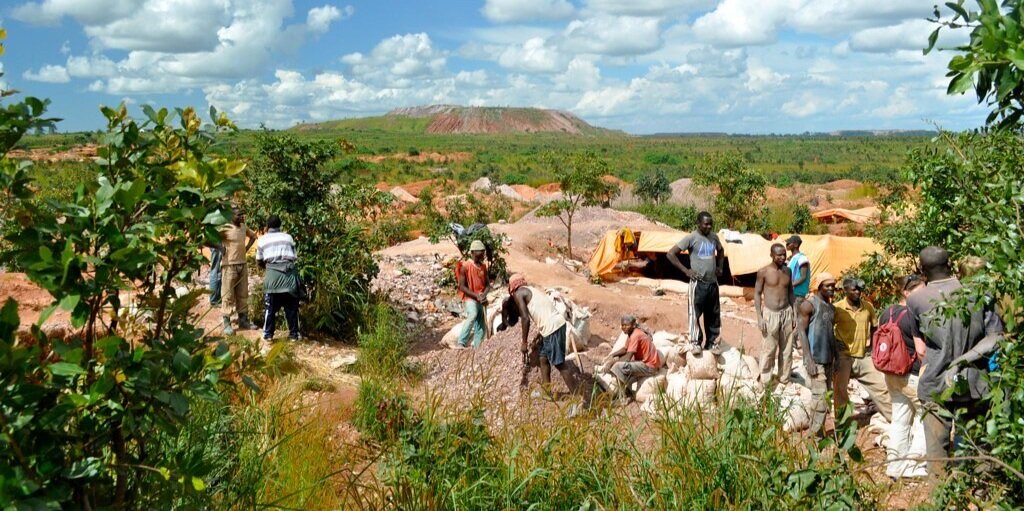The Problem
The cobalt industry has been under scrutiny for its poor practices since 2016 when Amnesty International and SARWATCH published the report This Is What We Die For. From child labor to corruption, environmental pollution, and poor working conditions, the industry if rife with risks. The Democratic Republic of the Congo (DRC) supplies approximately 65 percent of the world’s cobalt, which is powering the transition to clean energy and a carbon-free future through batteries and other technological innovations. The DRC will remain at the forefront of the race for electrification as it holds almost 50 percent of the known land-based reserves.
Cobalt, often a by-product of copper, is typically extracted from large-scale mining (LSM) operations for copper. However, a significant portion of the production is also sourced from artisanal and small-scale mining (ASM) sites, which have increased risks and challenges. To address these risks, the industry mobilized to create a series of responsible sourcing initiatives, standards, and new technology-powered solutions. The establishment of assurance mechanisms, responsible sourcing pilot projects, development-oriented initiatives, and traceability systems through blockchain have provided some avenues for improvement. However, the road to sustainable and responsibly-produced cobalt is long, and more needs to be done.
Our Work
Responsible Sourcing Network (RSN), in line with its work on conflict minerals, supports increased collaboration between the different actors and initiatives operating in the sector. We embrace a dual approach of advocating for more transparency and accountability in the sector with standardized annual disclosures on a voluntary or mandatory basis, while also taking a lead on needed research. We identified an important gap in the current research, and the links between industry actors and research institutions.
RSN has partnered with a researcher based in the Department of Anthropology at the University of British Columbia (UBC) to undertake an academic analysis of the cobalt sector and identify recommendations to increase the effectiveness of addressing ongoing issues. The research was funded through the Responsible Minerals Initiative (RMI) (via the Responsible Business Alliance Foundation). In 2021 we published an initial baseline study of the artisanal cobalt mining sector, with a focus on the unformalized market. This research is informing future actions, including partnerships with local organizations and research centers.

